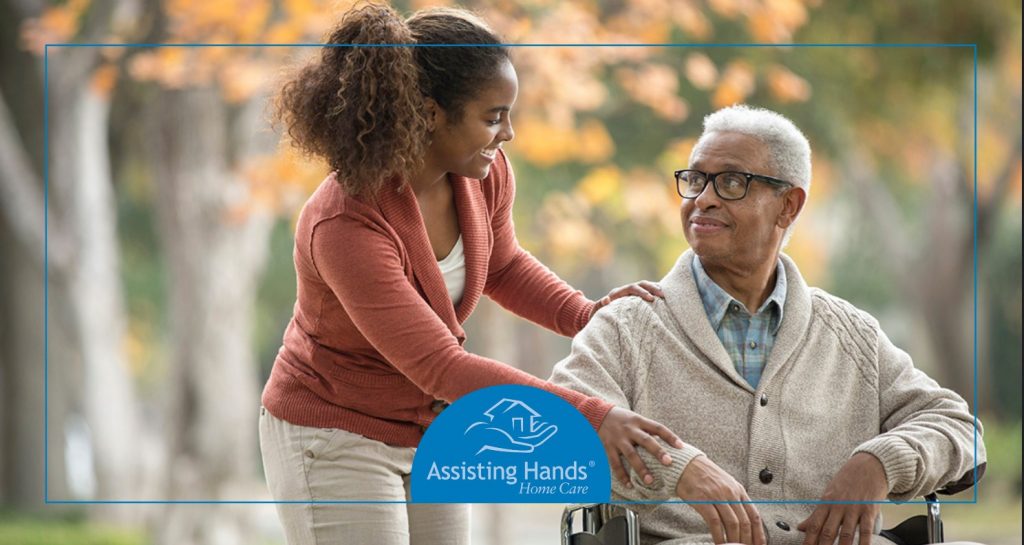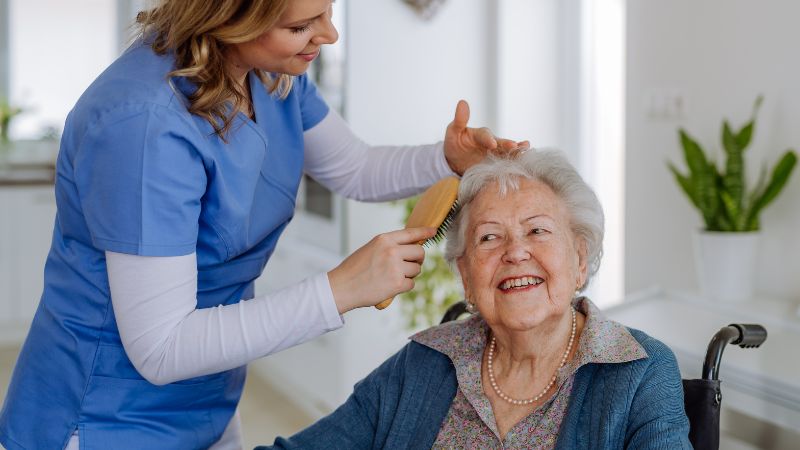
Caring for an elderly parent with dementia or an aging spouse with lung cancer is a challenging ordeal. Despite facing unfortunate health circumstances on a daily basis, caregivers have the potential to experience contentment. Being a happy caregiver can be achieved with these eight strategies.
The most fulfilled caregivers believe that happiness is a life choice. Caregivers of any age, those dealing with adverse life situations, caregivers in any geographic location, and those of differing socioeconomic statuses have the ability to choose happiness as an aim.
While happiness is a goal, it is important for caregivers to accept the somewhat harsher realities of their role. The stress of caregiving cannot be denied. Caregivers may feel destabilized by strong emotions, like anger, frustration, exhaustion, loneliness, or sadness.
As a result of caregiver stress, caregivers often experience a decline in their own health. Primarily focusing on a loved one may distract a caregiver from his or her personal well-being. The signs of caregiver stress are many and varied, yet demand attention and healing.
Constant worry, frequent exhaustion, sleeping too much or too little, gaining or losing weight, becoming easily agitated or irritable, and feeling sadness are common symptoms of caregiver stress. The stressed caregiver is also likely to lose interest in once-enjoyable activities.
Caregiver stress that continues for prolonged periods will harm the individual’s health. Symptoms of depression and anxiety can emerge. Neglecting self-care activities, such as getting sufficient rest and eating a balanced diet, can cause medical problems, like heart disease and diabetes.
Learn about How To Recover From Caregiver Burnout
Clearly, the pursuit of happiness and the reduction of caregiver stress are essential to the emotional well-being and physical health of the caregiver. Happy, less-stressed caregivers possess the physical and emotional resources to provide focused, compassionate care to vulnerable care recipients.
1. Maintain Quality Relationships
Creating joy may be accomplished by caregivers at any stage of their caregiving journey. One critical component of caregiver happiness is to nurture meaningful relationships. Friends, family and community play a pivotal role in eliminating the loneliness and isolation caregivers often feel.
The demands of caregiving can distract a caregiver from his or her own social network. The caregiver loses touch with friends, neighbors, and colleagues. The resulting loneliness is so detrimental to health that the consequences of such a condition are compared to smoking 15 cigarettes per day.
Caregivers are encouraged to maintain quality relationships; in fact, the quantity of relationships makes little difference in the attainment of happiness. Investing in quality relationships, which include people upon whom caregivers can rely in times of need, leads to greater happiness overall.
2. Achieve Life Balance
Balancing life pleasures, purpose, and pride is another way for caregivers to experience satisfaction. When caregiving setbacks arise or crises occur, this balance helps caregivers weather the obstacles. Having a reliable social circle gives caregivers the opportunity to reach out for a much-needed break.
3. Practice Visualization
A visualization practice is also beneficial for caregivers’ well-being. Happiness experts recommend visualizing happy memories associated with people and places for eight minutes daily. Practitioners are likely to experience higher life satisfaction and feel these emotional rewards for weeks afterward.
4. Feel Success in Minor Accomplishments
The continual responsibilities involved in caregiving can seem daunting. Rather than be intimidated by a long list of tasks, happy caregivers understand the importance of completing one task at a time and relishing in the success of the event, no matter how minor.
5. Discover and Apply Strengths
A care recipient’s health is rarely in a caregiver’s control. But achieving caregiving tasks is well within a caregiver’s abilities. Caregivers should make an effort to discover their strengths and use those strengths in caregiving tasks. The result is flow, and this application of strengths contributes to happiness.
6. Give or Receive a Hug
Even the simplest of interactions, such as giving or receiving a hug, release oxytocin, the feel-good hormone. Scientists have uncovered the health benefits of hugs: They boost immunity and ward off colds, calm anxiety, and increase brain health. Eight bear hugs per day are prescribed.
7. Incorporate Humor
Laughter is proven to be among the best medicines. Caregivers are encouraged to include a daily dose of humor in their caregiving days. Upon laughing, the muscles in the body relax; stress hormones decrease, which boosts immunity; plus, laughter increases blood flow, which protects the heart.
8. Practice Hygge
The Danish practice the art of hygge, which, upon translation, means “coziness”. The pervasiveness of digital technology leaves caregivers with little time to calm down and unwind. The concept of hygge involves finding quiet moments to connect with people through physical and eye contact.
Caregivers who seek happiness should include moments of quiet time in their daily caregiving routines. Suggested activities include playing cards with family or friends, perusing the pages of an anticipated novel, or simply relaxing. Incorporate 20 minutes of hygge into each day.

Happy family caregivers are in the position to provide sufficient care without burnout. An integral part of caring for an aging loved one is to rely on professional care from reputable home care agencies, like Assisting Hands Home Care. We provide quality senior care in the comfort of home.
Our elder care services are flexible and can be customized to meet the unique care needs of the aging individual. Families who need short-term care can count on our respite care services. We also provide excellent companion care, 24/7 home care, and compassionate memory care.
Assisting Hands Home Care professionals are experienced in discreetly helping seniors with daily personal care tasks, such as bathing, toileting, and dressing. We also prepare nutritious meals, shop for groceries, provide transportation, perform light housekeeping, and give timely medication reminders.
Companion caregivers from our home care agency build strong bonds with elderly care recipients. We initiate conversations about seniors’ lives, encourage them to pursue hobbies, join them in recreational activities, and play games to stimulate their minds. Healthy social interactions maintain well-being.
Families choose Assisting Hands Home Care for quality senior care. Our companion caregivers make efforts to improve seniors’ daily lives and help them lead fulfilling ones. We serve the elderly populations in Burr Ridge, Countryside, Downers Grove, Hinsdale, Hodgkins, Indian Head Park, LaGrange Highlands, Lyons, McCook, Palisades, Willow Springs, and the surrounding communities of DuPage and Cook Counties in Illinois. Call us at (630) 407-1932for an in-home consult.
















